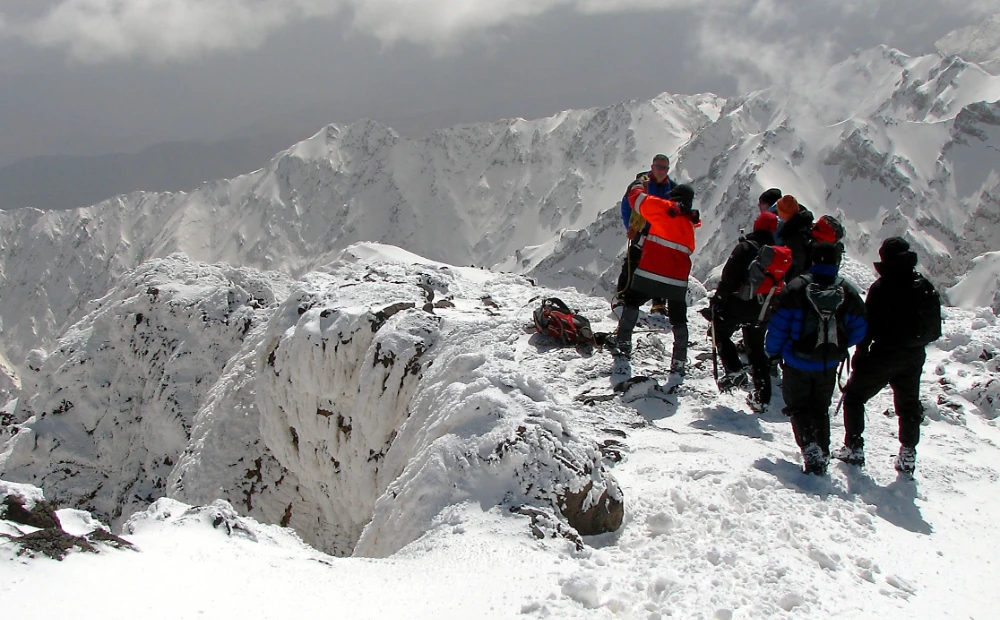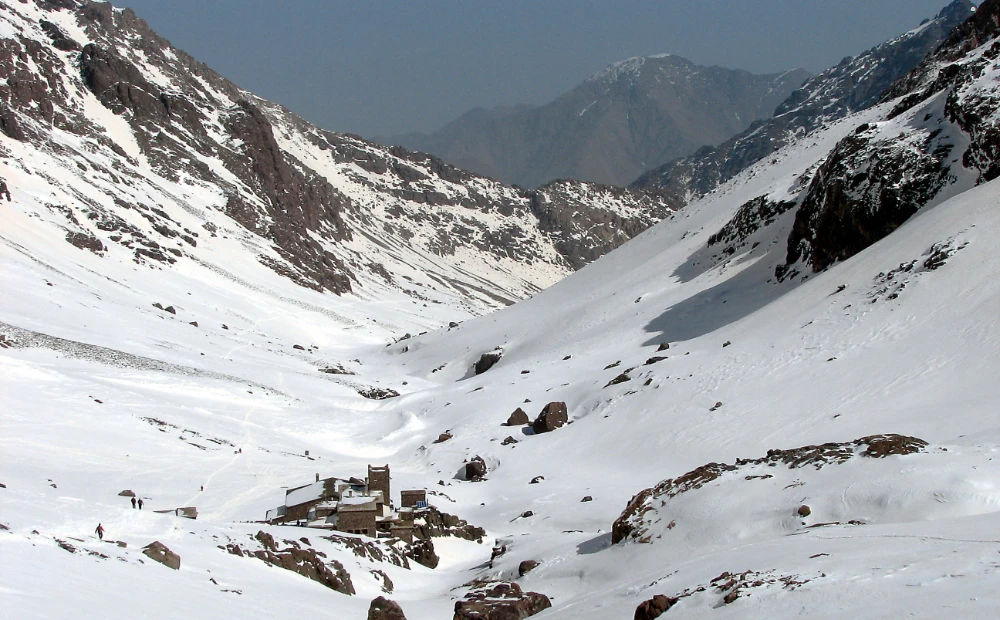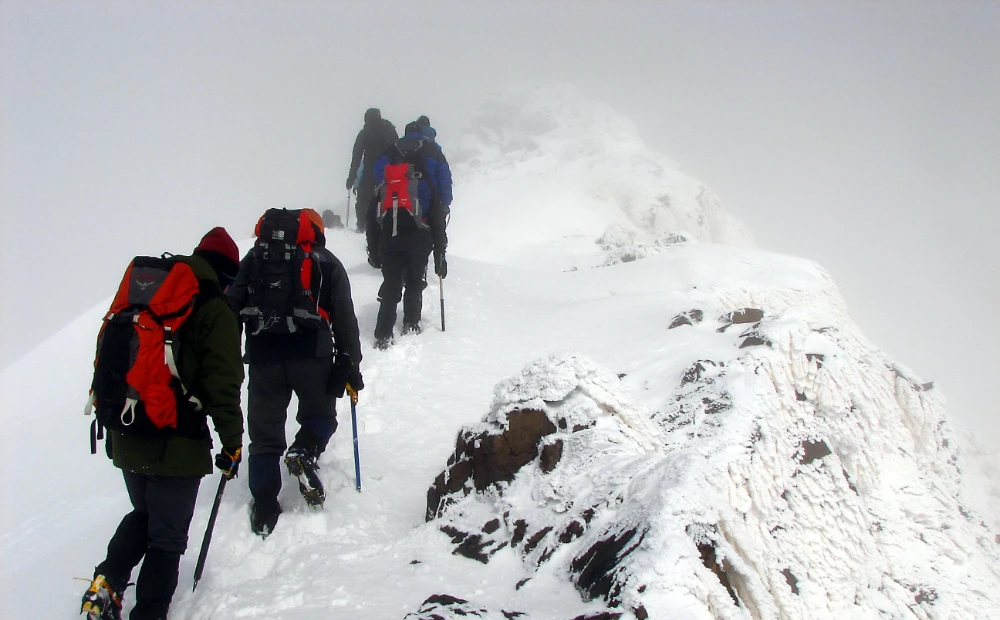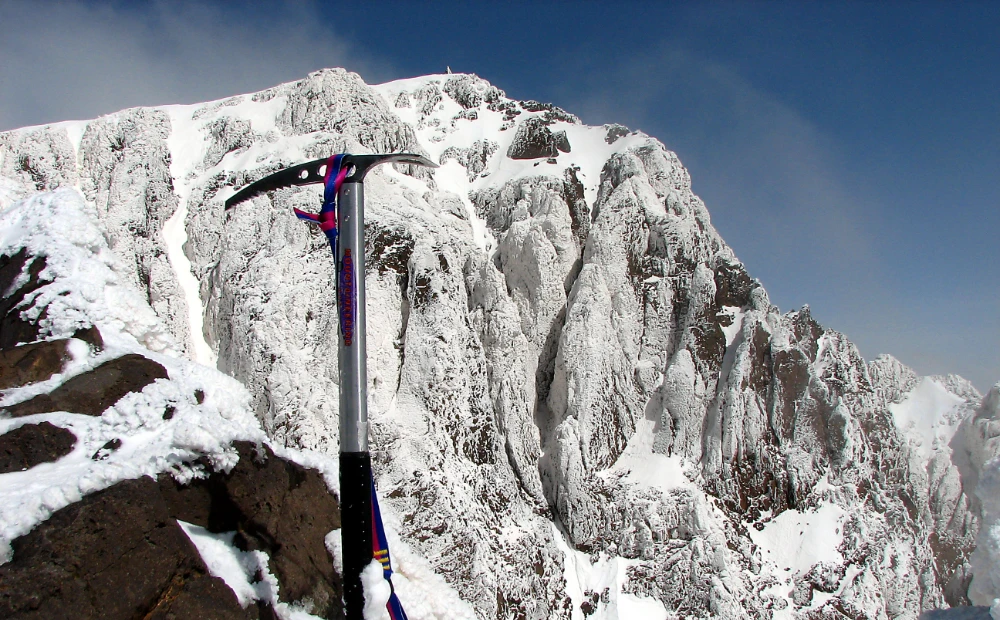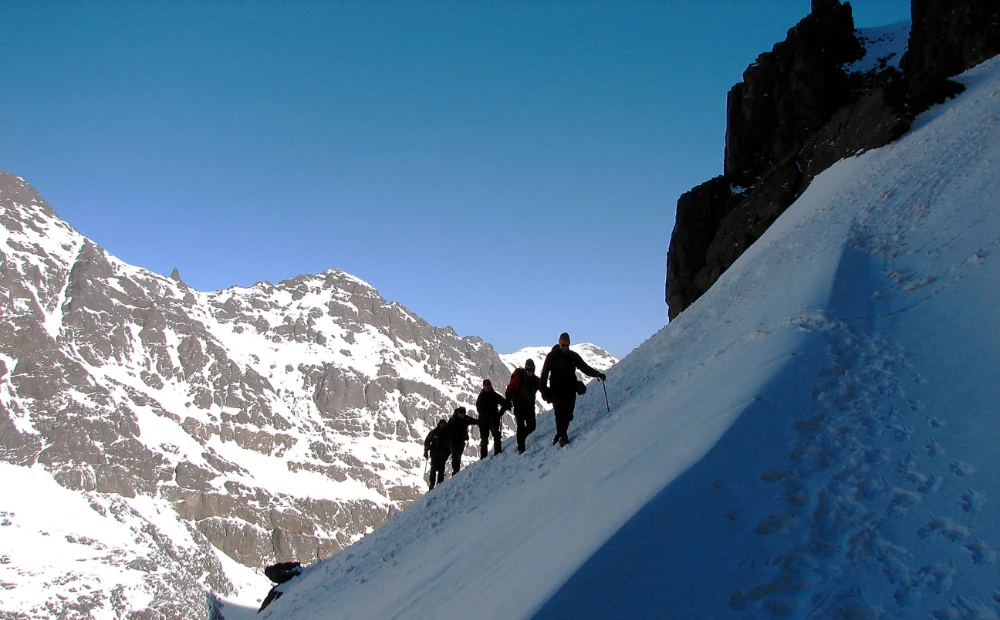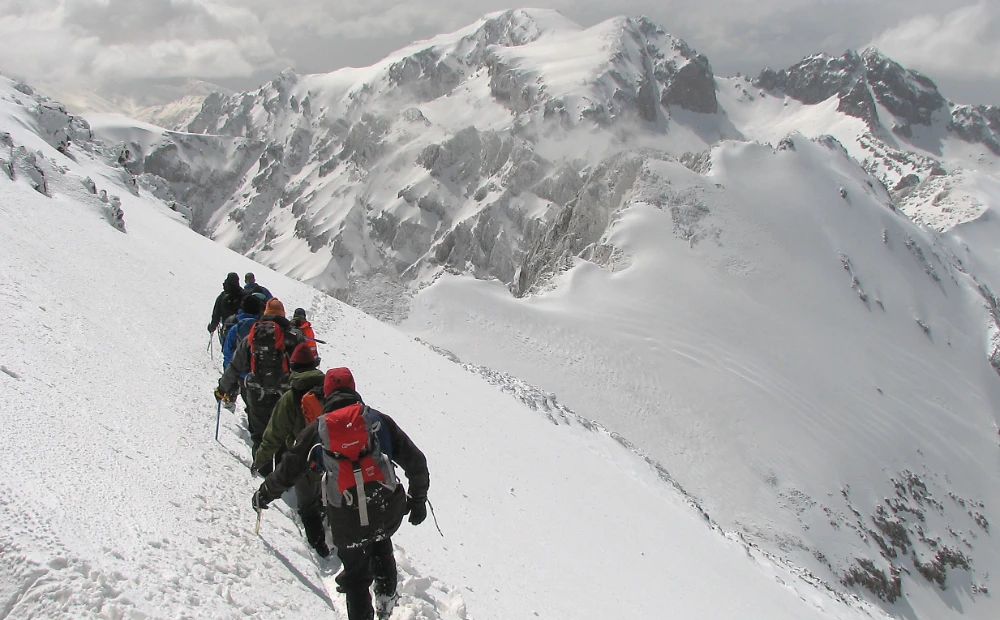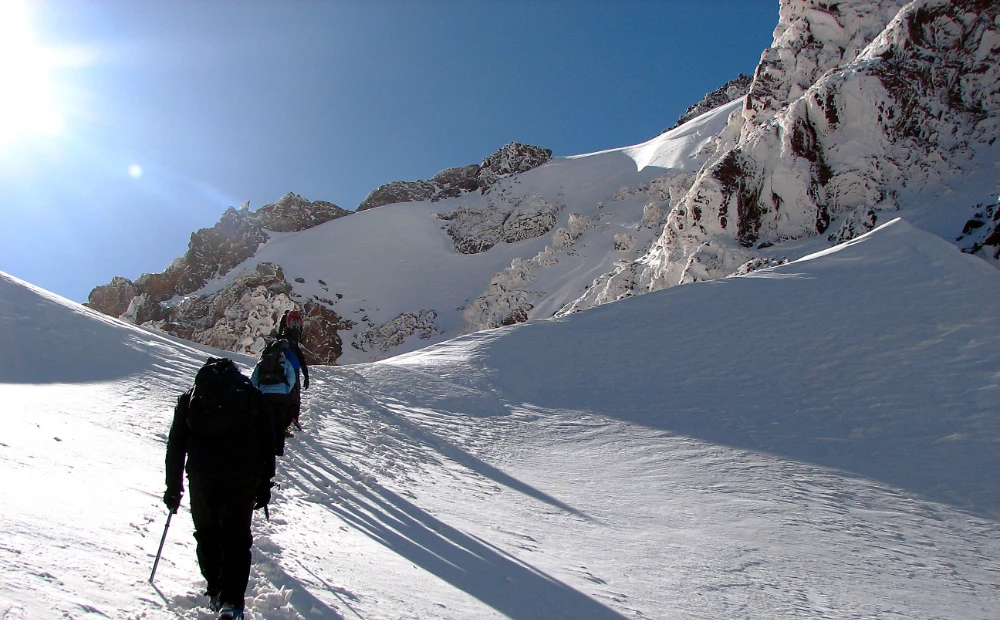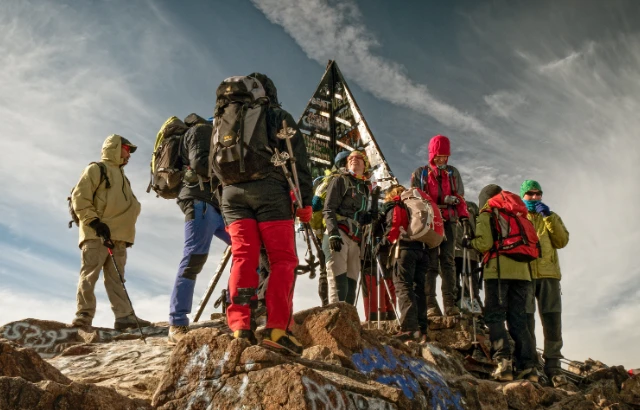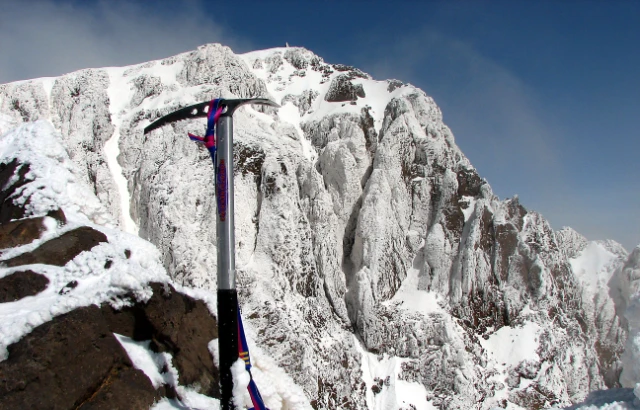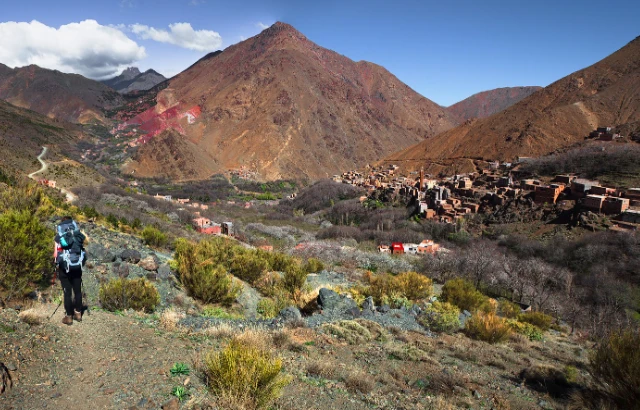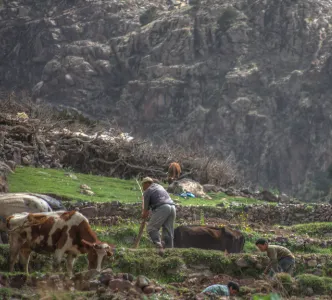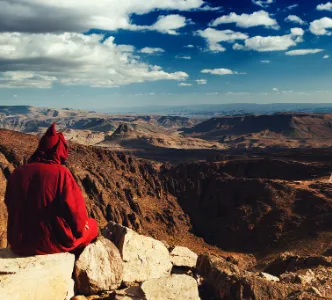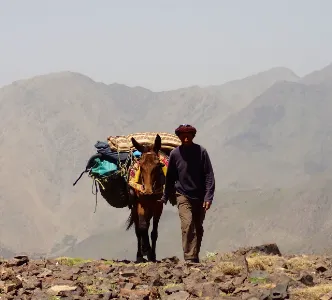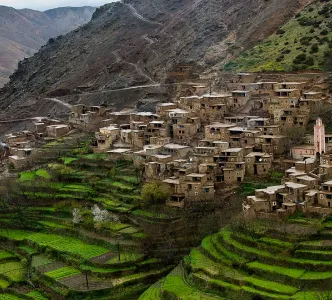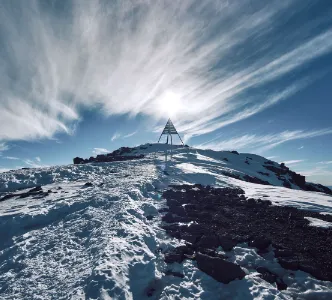Equipment Needed for Summer and Winter Treks to Mount Toubkal:
General Items:
Backpack: A sturdy, comfortable backpack for carrying your essentials during the trek.
Daypack: A smaller daypack for carrying items you'll need during the summit climb.
Hiking Boots: Quality hiking boots with ankle support for traction and comfort on rocky terrain.
Clothing Layers: Lightweight, moisture-wicking clothing that can be layered for temperature changes.
Rain Gear: Waterproof jacket and pants to protect against rain and wind.
Warm Hat and Gloves: Essential for protecting against cold temperatures.
Sunglasses: UV-protective sunglasses to shield your eyes from bright sunlight.
Sunscreen: High SPF sunscreen to protect your skin from sunburn at high altitudes.
Headlamp: A hands-free light source for early morning or late-night activities.
Reusable Water Bottle: Stay hydrated by carrying a refillable water bottle.
Personal Medications: Any personal medications you require, along with a basic first aid kit.
Camera: Capture the stunning landscapes and memories of your trek.
Summer Trek Additional Items:
Lightweight Clothing: Short-sleeve shirts, shorts, and breathable pants for warm weather.
Hat: A wide-brimmed hat for sun protection.
Hiking Socks: Moisture-wicking socks to prevent blisters.
Trekking Poles: Optional but helpful for stability on uneven terrain.
Insect Repellent: Protect yourself from insects in the warmer months.
Winter Trek Additional Items:
Insulated Clothing: Thermal layers, fleece jackets, and insulated pants for colder temperatures.
Thermal Underwear: Long-sleeve thermal tops and bottoms for added warmth.
Warm Sleeping Bag: A sleeping bag suitable for cold nights at higher altitudes.
Crampons: If the trail is icy, crampons provide traction on slippery surfaces.
Gaiters: These protect your lower legs and boots from snow and moisture.
Hot Hands/Feet Packs: Disposable heat packs for added warmth in extreme cold.
Balaclava or Neck Gaiter: Extra protection for your face and neck from the cold.
Insulated Water Bottle: Prevent your water from freezing by using an insulated bottle.
Snow Goggles: Essential for protecting your eyes from snow glare.
Winter Gloves: Insulated, waterproof gloves for sub-zero temperatures.
Winter Hat: A warm hat that covers your ears in the cold.
Remember that packing efficiently is key. Choose clothing that can be easily layered and removed, and prioritize items based on the specific season you'll be trekking. It's also advisable to consult with your tour operator or local guides for any gear recommendations specific to the time of year you plan to undertake the Mount Toubkal trek.


